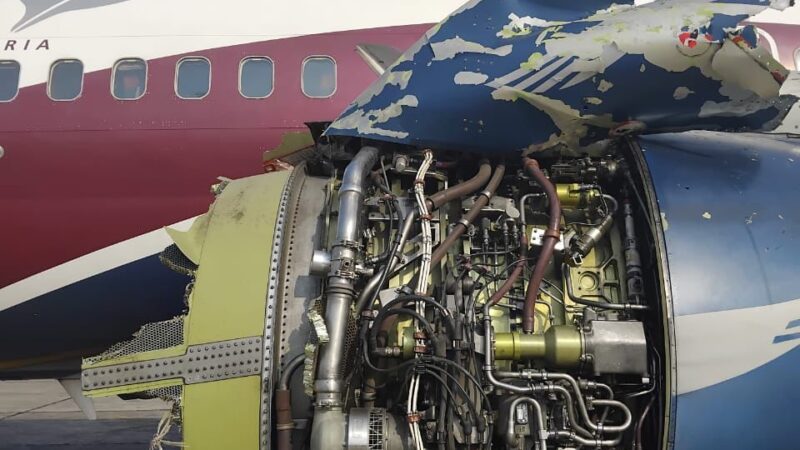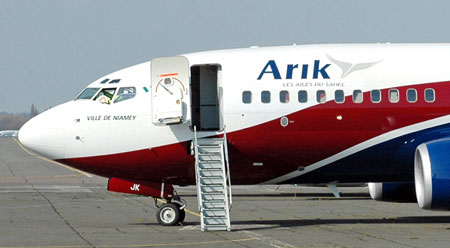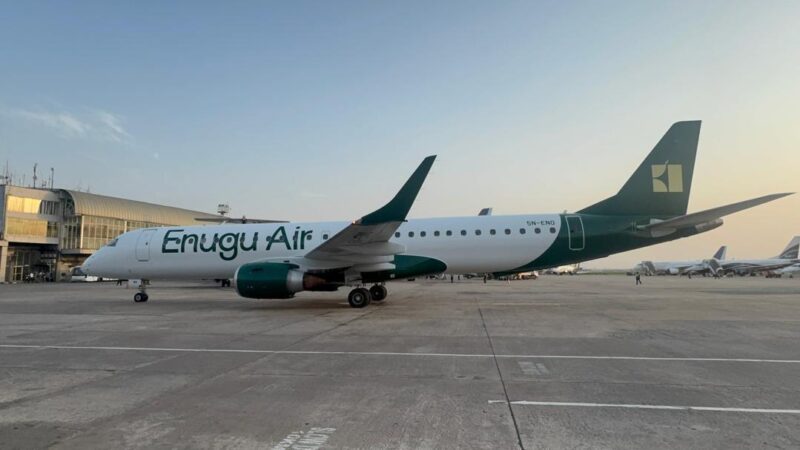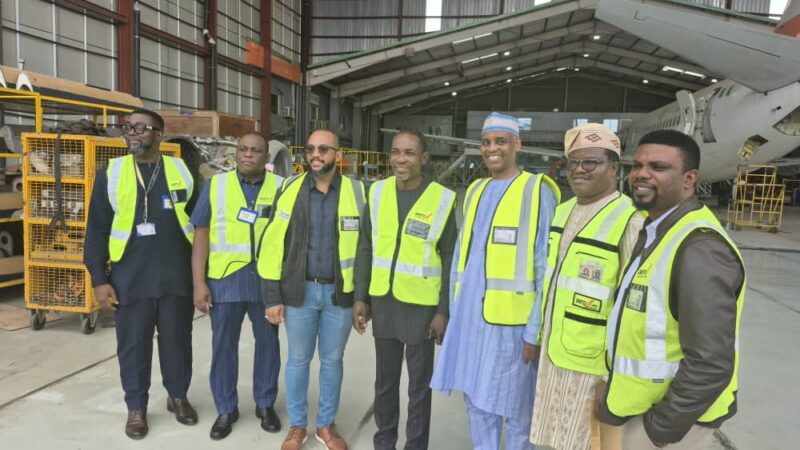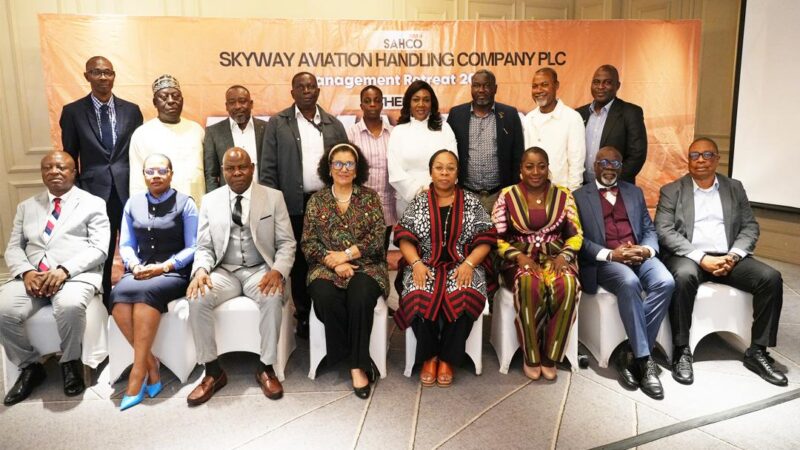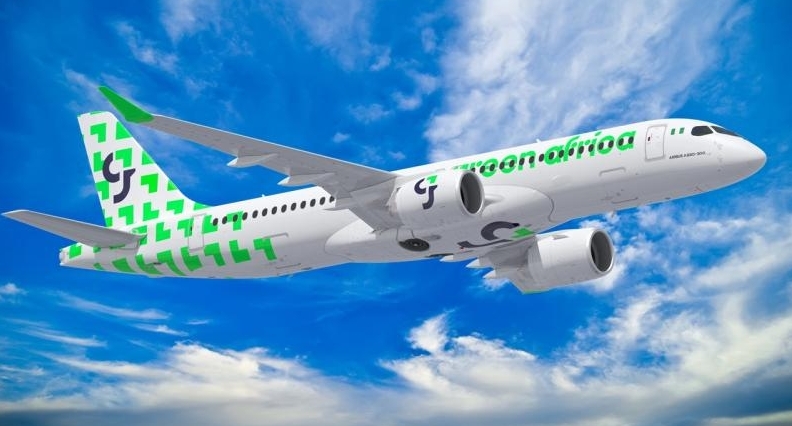Unpacking Aviation Charges: Presidential Committee Chairman outlines reform strategies
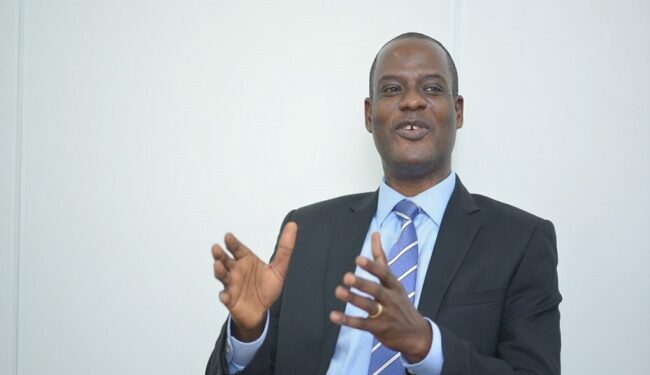
The Chairman of the Presidential Fiscal Policy and Tax Reforms Committee, Mr Taiwo Oyedele has outlined reform strategies that will address complexities surrounding charges, duties and tariffs in Nigeria’s aviation sector.
In a keynote address during a Breakfast Meeting organised by the Aviation Safety Round Table Initiative (ASRTI), Oyedele recognised the pivotal role of ports as economic gateways, emphasising their reflection of the nation’s regulatory intricacies, investor-friendliness, process efficiency, and commitment to innovation.
He highlighted the substantial contributions of the aviation sector to Nigeria’s GDP, job creation, and foreign exchange earnings, pointing out untapped potential for the nation to emerge as a prominent player in Africa and the global aviation landscape.
Discussing challenges across seaports and airports, Oyedele raised concerns about the high cost of domestic goods transportation and the formidable export process, leading exporters to explore alternative routes.
According to him, recent International Air Transport Association (IATA) rankings identified Lagos and Abuja airports as the world’s most expensive, signaling alarms about levies, taxes, fees, and charges.
Oyedele disclosed another troubling information that at least 15 airports in Nigeria face viability challenges, causing financial strains despite limited resources.
He emphasised the urgency of alleviating pressure on viable airports, particularly Lagos and Abuja, by addressing taxes and levies.
“Disturbing reports indicate that it is more expensive to transport imported goods from Apapa Port to the hinterland than it is to bring them from China.
“The export process is equally arduous, with prolonged clearance and certification procedures, coupled with an array of levies, prompting some exporters to opt for alternative routes through neighbouring countries.
“Recent revelations from IATA rank our Lagos and Abuja airports as the two most expensive in the world, no thanks to the endless levies, taxes, fees and charges. Whether or not this assertion is accurate, the mere perception of it is detrimental and demands our urgent attention.
“Equally, a recent news report credited to FAAN indicated that at least 15 airports in Nigeria are not viable. Sadly, beyond the huge capital outlay, we also need to maintain these airports and airstrips at huge costs despite our lean resources.
“This places undue pressure on the few viable airports, particularly the Lagos and Abuja, perhaps contributing to the myriad of taxes and levies. Solving these challenges requires a departure from the mindset that created the problems in the first place.
He noted that the aviation industry grapples with issues such as carriers flying empty outbound cargo planes due to exorbitant loading charges and airlines choosing neighboring countries for cost-effective overnight parking.
To boost regional and global competitiveness, Oyedele urged tackling the burdens of multiple agencies, intricate paperwork, and numerous taxes.
He stressed the necessity of cultivating an environment that fosters business growth instead of taxing seeds, outlining the Presidential Fiscal Policy and Tax Reforms Committee’s mandate to harmonise taxes, streamline revenue collection agencies, and promote a competitive business landscape.
“As a nation, we cannot aspire to be competitive while at the same time burdening businesses with complex processes. We must cease taxing seeds and, instead, foster an environment that encourages businesses to thrive, bearing fruits that we can tax.
“In this pursuit, the Presidential Fiscal Policy and Tax Reforms Committee was established, with a clear mandate to harmonize taxes and revenue collection agencies, promote business growth, and cultivate a competitive landscape, among others,” Oyedele noted.
Assuring the audience of the committee’s dedication, Oyedele invited stakeholders to a virtual consultation session for the aviation sector on December 15, 2023, from 4-6 pm.
The session aims to collect insights and recommendations, guiding policy measures and interventions for a vibrant and globally competitive aviation industry in Nigeria.


